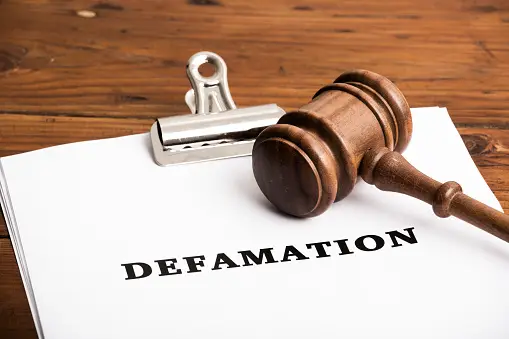Nowadays, the digital era is characterized by the speed of information propagation. This is also because of their ease of sharing, and we have a great responsibility. The right of free speech is fundamental, but it has boundaries where it is not used to the detriment of others. Section 499 of the Pakistan Penal Code (PPC), which addresses the issue of defamation, is one such limit. This post will discuss the major aspects of Section 499 PPC, and its importance to the reputation protection and free speech versus responsibility issue.
Defining Defamation
Defamation is a mere statement made against someone, which hurt the reputation of the person. The damage may manifest itself in the form of a reduced social status, mockery, or broken personal or work relations. Defamation may be oral or written, on social media, and other online platforms.
Understanding Section 499 PPC
Defamation is specifically discussed in section 499 of the PPC. According to it, a person who by spoken words, written words, signs and visible things, makes or publishes an imputation concerning a person, with the intention of injuring the reputation of such a person, has committed the crime of defamation. The imputation may be by word or letter and should be intended to harm.
One of the defences against defamation is truth. A defendant can prove that the statement was true and in the interest of the people thus not to be defamatory. It is however difficult to prove truth and it might need a lot of evidence in the court.
Punishment for Defamation
Section 499 PPC is a criminal law and, therefore, it stipulates punishment of the crime. When guilty, one can end up serving two years in jail, a fine, or a combination of both. Its aim is to discourage misleading and harmful speech and guard the social cloth against unneeded violence.
Civil, Criminal Defamation.
One should make a difference between civil and criminal defamation. A civil defamation is a personal wrong. The slandered individual may sue on compensation. Section 499 called criminal defamation includes state prosecution and punishment (imprisonment or fine).
Scandals and Objections.
Section 499 is intended to protect individuals against damaging reputation assaults. Yet it also sparks debate. Critics argue that making defamation a crime will kill free speech and inhibit fair criticism. Others are of the view that defamation is an issue that can only be addressed as a civil case, without the fear of jail time.
The use of social media and online sites complicates defamation cases. It may be particularly difficult in the digital world to establish jurisdiction, discover who is using it anonymously, and determine truthfulness.
Conclusion
Section 499 of the PPC is critical in supporting individual reputation and to deter the broadcasting of negative harmful information. It gives freedom of speech and the necessity to safeguard people against harm. With the changing digital environment, we need to continue trying to answer the question of whether defamation should be criminalized, and how to deal with the online communication issues. With responsible expression and accountability, we will be able to create a healthier and informed society. For more insights about Section 499 and other US Tax Laws, visit our website Apnaqanoon.









